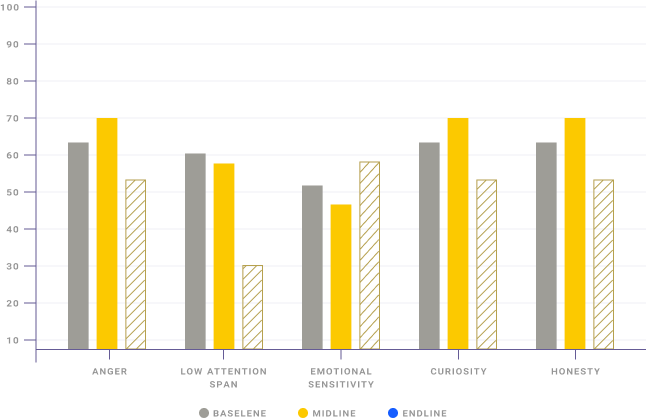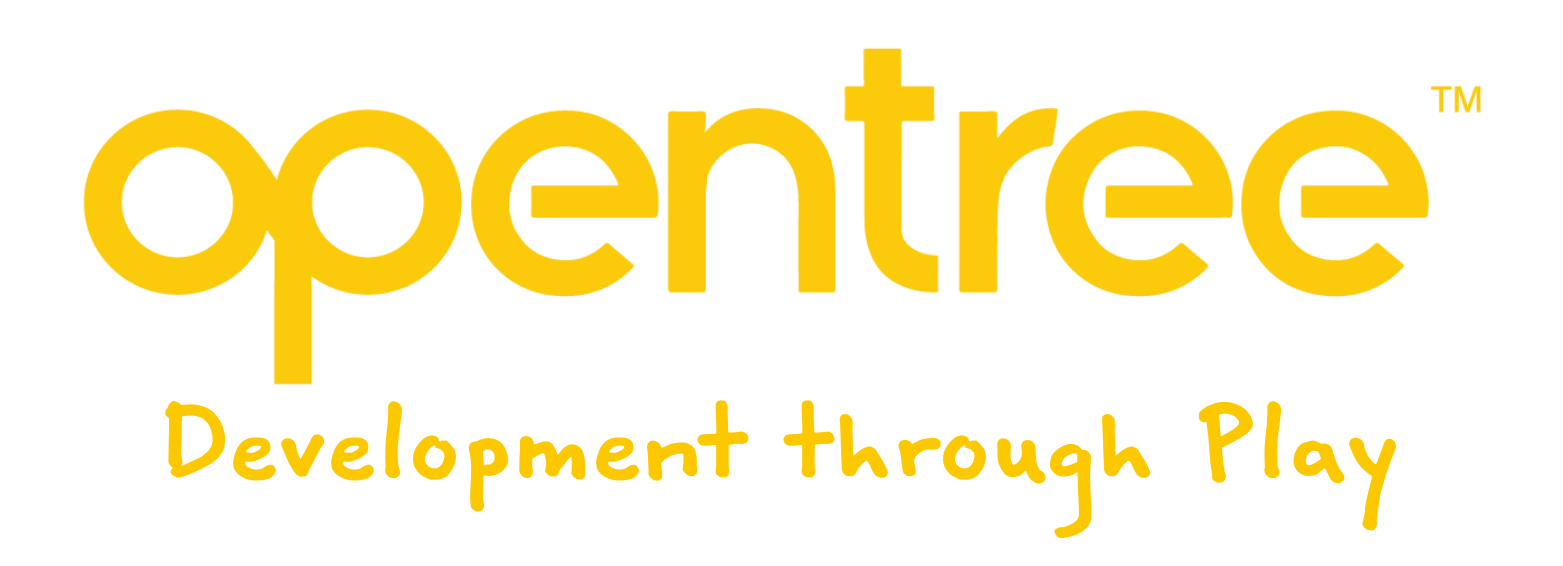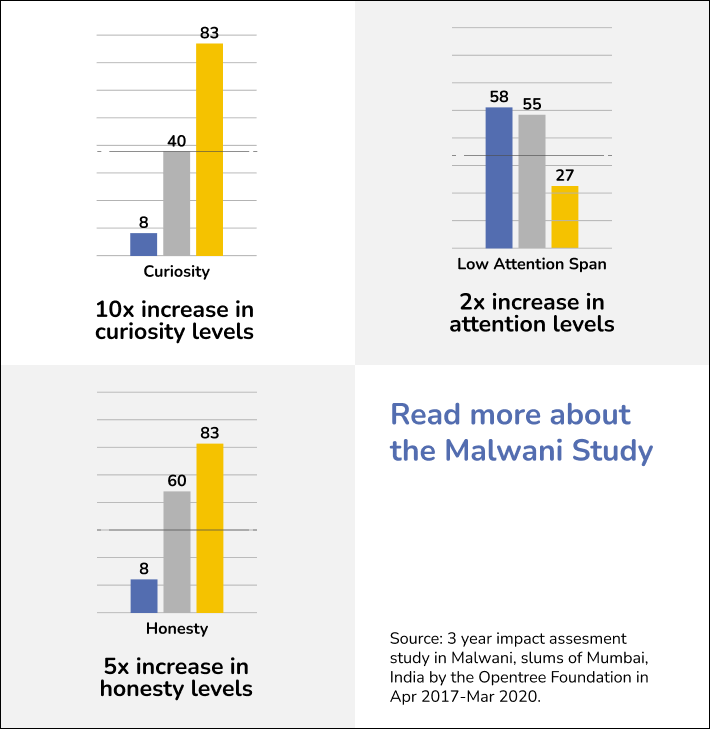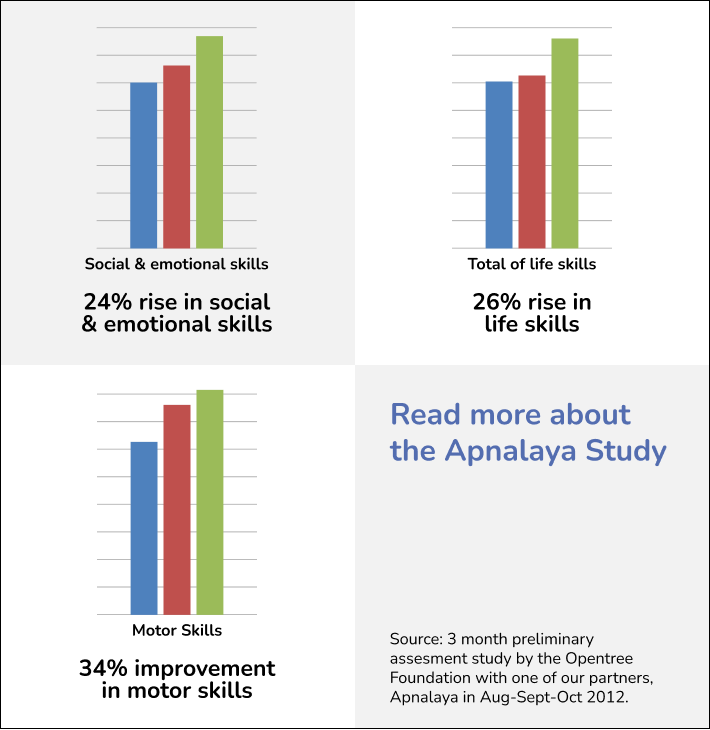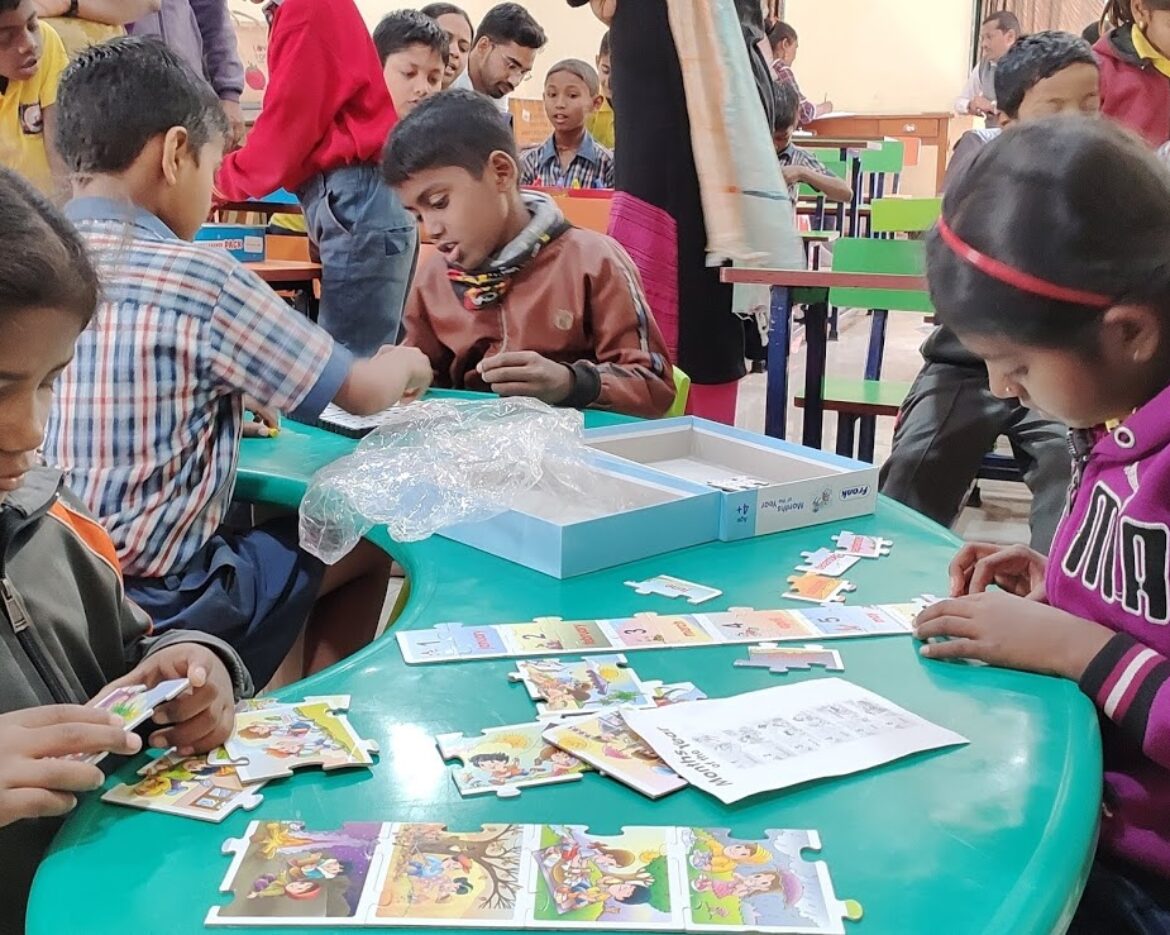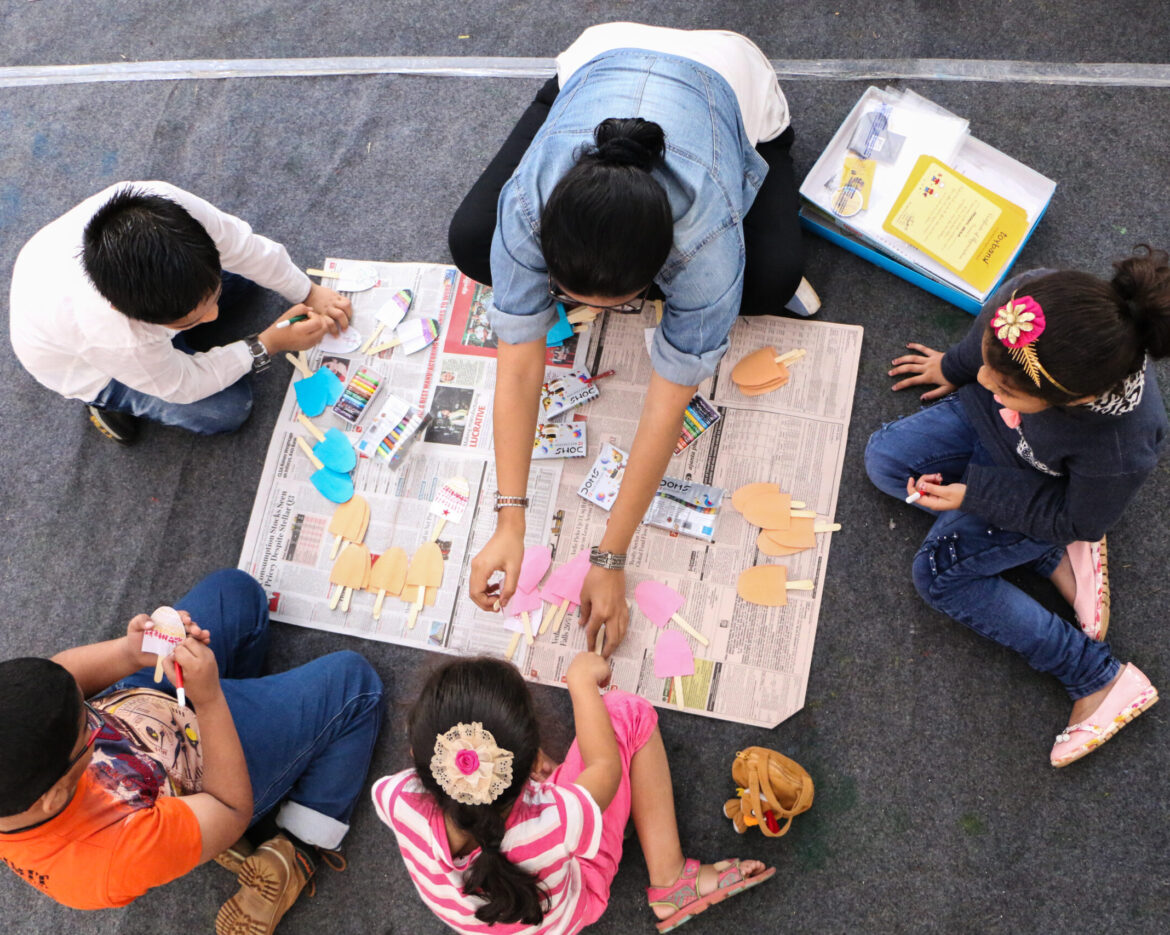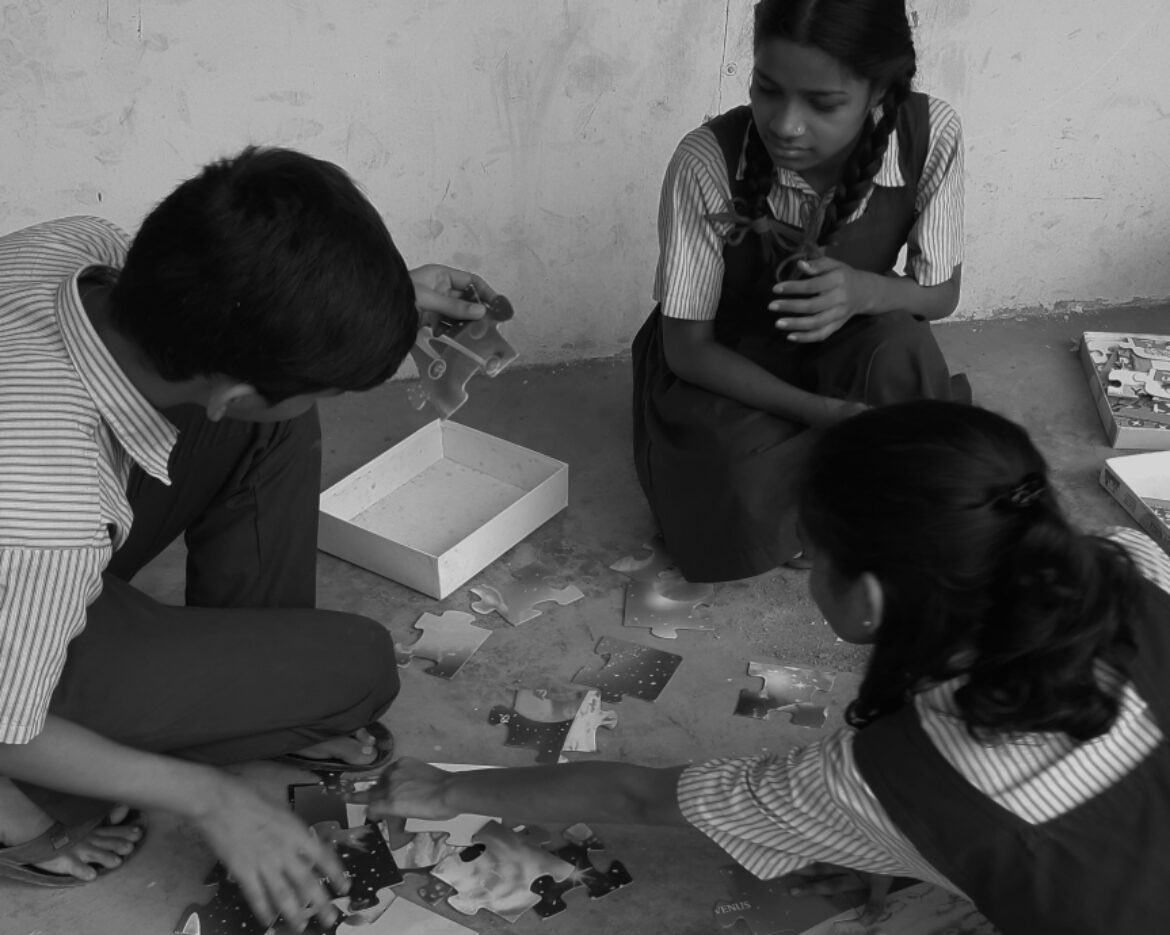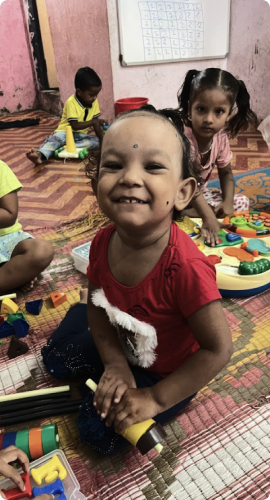
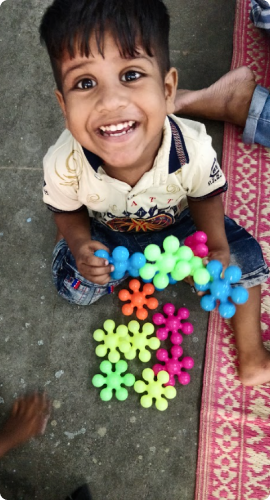
A Child’s Gateway to the World
Play is born from children’s natural curiosity to explore the world around them. In their early days, children use their senses to interact with the world around them. Thus begins play, which continues to shape a child’s life throughout.
Studies have shown that play has a positive and long-lasting impact on children’s cognitive, socio-emotional and physical development and that a childhood deprived of play can adversely impact their adulthood.
Our Play programmes help children build dynamic skills for a changing world:
Drives creativity, curiosity and imagination
Promotes self-awareness and self-management
Fosters collaboration, communication, adaptability, and relationship-building
How we Play
Our Play programmes combine free and guided play methods leading to joyful learning
Free Play
- Boosts executive functions, self-regulation, social skills, self-esteem, well-being, spatial skills, creativity and imagination
Guided play
- Enhances literacy, numeracy, social and self-regulation skills
Learning Through Games
- Develops problem-solving, strategy, reasoning, collaboration, and communication skills
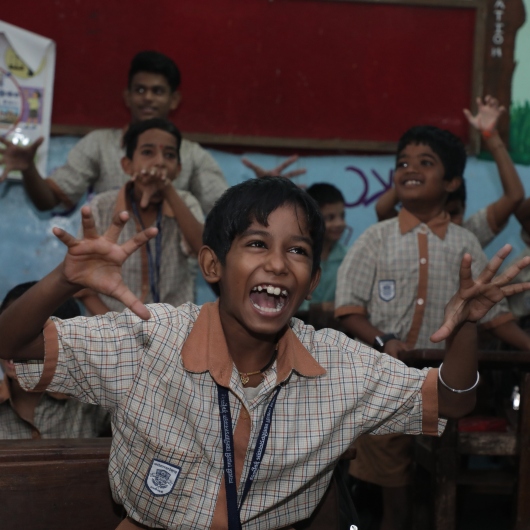
Creating Playful Childhood Experiences
Childhood to adulthood
Play during childhood contributes to children’s development in significant ways. Through play, children may imagine and explore a world they can control, thus overcoming their fears. When playing together, children are not just having fun, but are building skills of communication and collaboration that will benefit them in the long-run. As we move into adulthood, our definitions of play change, but many motivations remain the same, which help us form a framework of play across ages.
Unleashing the Benefits of Play
Play contributes to a child’s intellectual and overall development. It provides a fun and engaging experience for children and serves as a platform for them to learn, grow and thrive. Our Play approach focuses on building skills and competencies for children to grow into empathetic, thoughtful and successful adults.
Critical Thinking Skills
Critical Thinking and Problem-solving are essential 21st-century skills linked to a successful adulthood experience. The play process naturally creates an environment where children must use their cognitive abilities. When children play, they think independently, take risks, make choices and try to find solutions to problems. Play impacts the brain’s prefrontal cortex responsible for executive function and higher-order skills like decision-making and problem-solving.
Socio-Emotional Skills
When children play alone or with others, they experience varying emotions and develop the ability to recognise, process and manage them. Play provides several opportunities for children to build self-awareness and self-management, and understand others better. They learn to communicate, empathise, cooperate and form positive relationships with those around them.
Communication Skills
One of the skills that enable children to coexist in harmony with others is effective communication. Play encourages children to collaborate, strategise, reflect, and most importantly, express themselves. Whether engaging in pretend play or playing a board game, children learn to focus, listen actively, share ideas and opinions, express their feelings and emotions in healthy ways, and understand the impact of body language and tone.
Cognitive Skills
Play is also linked to vocabulary development, enhanced cognitive skills, and better memory and attention, all of which help children to learn better and engage more deeply with the world around them.
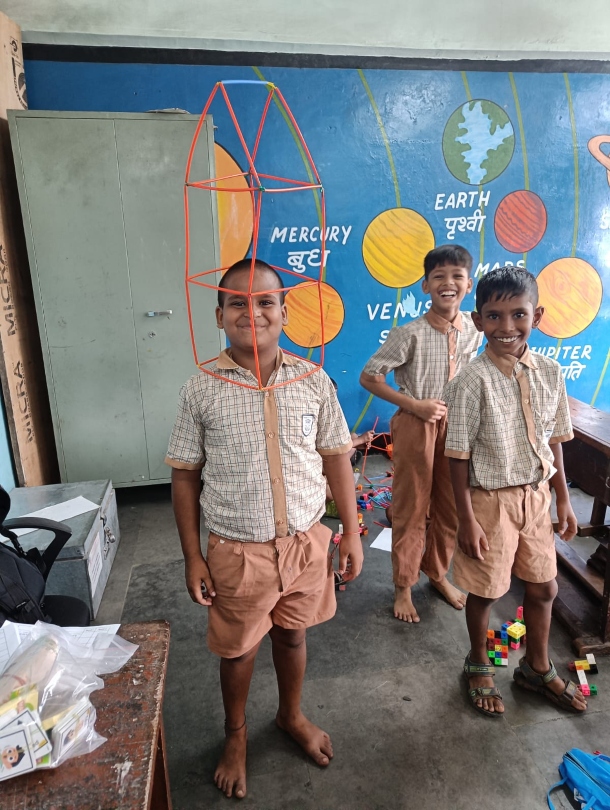
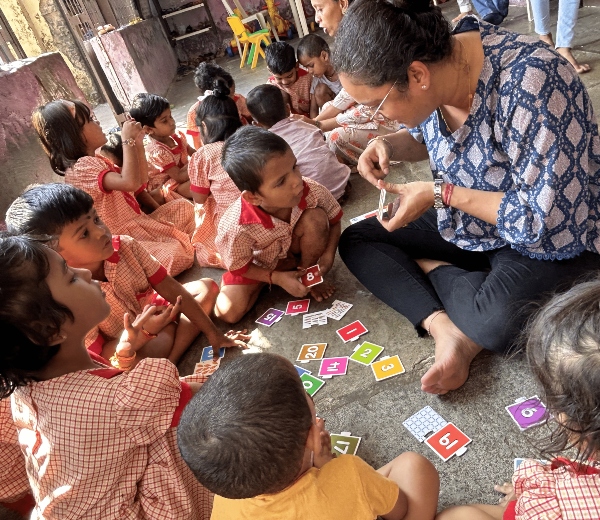
Children experience economic and emotional adversity in various ways. The lack of playfulness in childhood disrupts developmental milestones and may lead to an unstable adulthood. For at-risk children particularly, play can provide a sense of normalcy and joy and can act as a therapeutic tool for processing trauma or difficult life experiences. Our Play programmes create a hopeful world for at-risk children, ensuring they have access to the transformative powers of play
The Power of Play
Toybank’s 3-year impact study with over 8,000 children shows how play changed children’s lives in Mumbai’s urban slums.
Let’s understand the power of play and see life transformation in action.
Here are the results of our 3-year impact assessment survey conducted in the slums of Malvani, Mumbai
The Conscious PlayTM programme brought about:
- 10x increase in curiosity
- 5x increase in honesty
- 2x increase in attention span
It also brought about other positive changes:
- 24% rise in social and communication skills
- 26% rise in motor skills
- 34% rise in life skills
Behavioral Progress
( April 2017 - March 2020)Primary And Secondary Children
